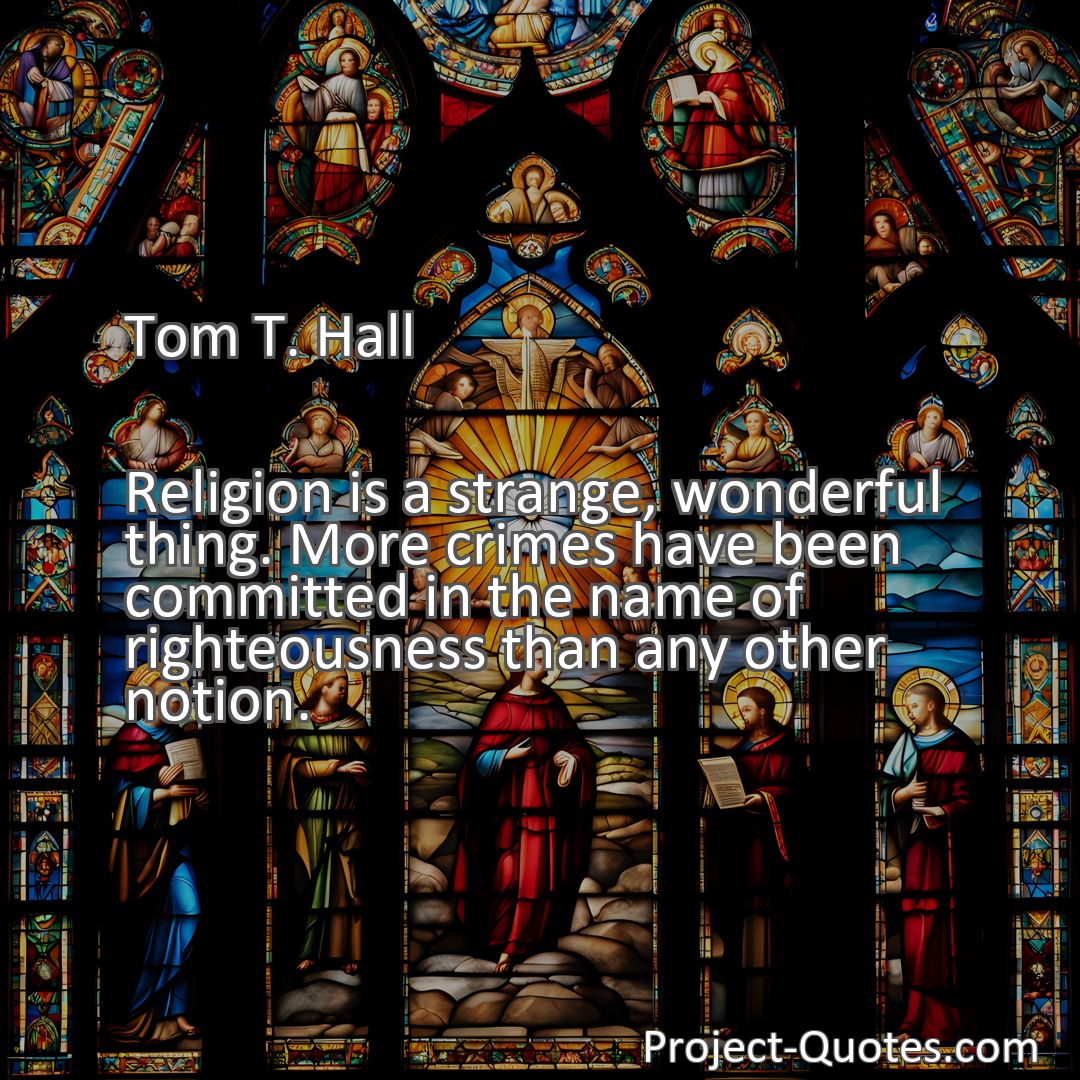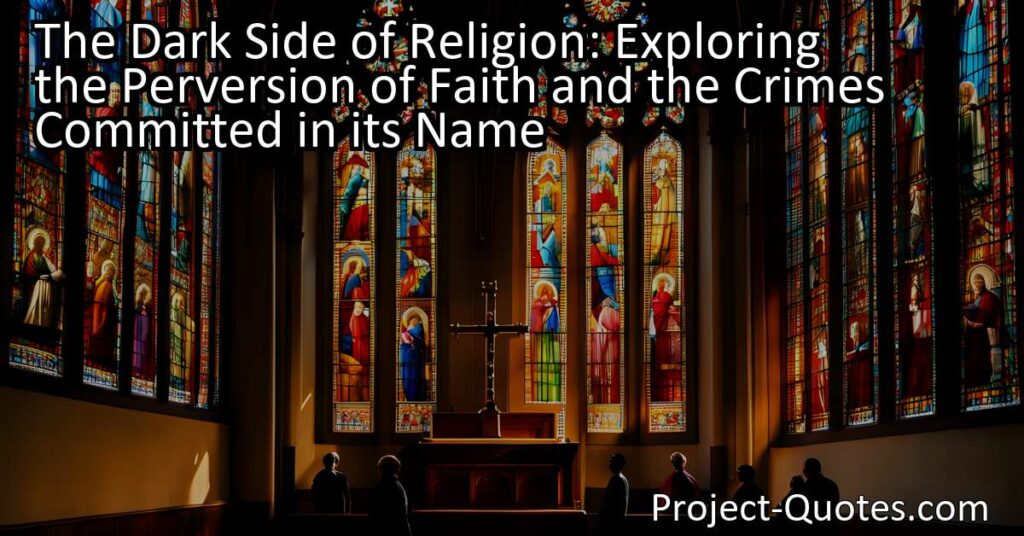Religion is a strange, wonderful thing. More crimes have been committed in the name of righteousness than any other notion.
Tom T. Hall
The Dark Side of Religion: Exploring the Perversion of Faith and the Crimes Committed in its Name Religion has the power to inspire moral goodness, but it has also been twisted to justify horrific crimes. From historical examples like the Crusades to the rise of extremist ideologies, religion has been perverted for personal gain and power. While faith can promote kindness and justice, understanding the psychological and sociological factors behind the perversion of religion is crucial for creating a more inclusive and peaceful society.
Table of Contents
- 1 Religion is a strange, wonderful thing. More crimes have been committed in the name of righteousness than any other notion.
- 2 Tom T. Hall
- 3 Meaning of Quote – Religion is a strange, wonderful thing. More crimes have been committed in the name of righteousness than any other notion.
- 4 Freely Shareable Quote Image
- 5 Related
Meaning of Quote – Religion is a strange, wonderful thing. More crimes have been committed in the name of righteousness than any other notion.
Religion is a strange, wonderful thing. These words, spoken by American songwriter Tom T. Hall, carry a deep truth that reflects the complexity of human beliefs and behaviors throughout history. While religion has the power to inspire individuals to live moral and compassionate lives, it has also been used as a justification for the most heinous crimes imaginable. This paradoxical nature of religion raises important questions about the role of faith in society and the impact it can have on the human condition.
Throughout history, countless acts of violence, discrimination, and oppression have been carried out under the banner of righteousness. From the Crusades to the Spanish Inquisition, and from the Salem Witch Trials to the rise of extremist ideologies, religion has often been invoked to justify horrific acts committed in the name of one’s beliefs. These historical examples highlight the dangerous potential of religious fervor when it is distorted and manipulated for personal gain or power. It serves as a dark reminder that religion, though often a source of hope and moral guidance, can be twisted and perverted to serve the interests of those who seek control or dominance over others.
Yet, it is important to recognize that these instances of religiously motivated crimes do not define the true essence of faith. Throughout centuries, religions have played a vital role in promoting acts of kindness, compassion, and social justice. The teachings of religious figures such as Jesus, Buddha, and Muhammad have inspired countless individuals to strive for a more equitable and harmonious world. Religion, at its core, seeks to bring people closer to a higher power and provide a moral framework that encourages individuals to lead virtuous lives.
However, the perversion of religion for personal or political gain cannot be overlooked. The power dynamics at play and the human inclination towards tribalism can lead to the exploitation of religious beliefs. When religion becomes a tool to legitimize discrimination or aggression, it deviates from its intended purpose. This distortion is often a result of individuals or groups claiming a monopoly on religious truth, asserting their beliefs as superior to others, and using that as a pretext for violence or discrimination.
In order to understand why more crimes have been committed in the name of righteousness than any other notion, it is crucial to examine the psychological and sociological factors that contribute to this phenomenon. The inherent human desire for belonging and meaning often leads individuals to seek solace in religious communities. The shared beliefs, rituals, and values found within these communities provide a sense of identity and purpose. However, the same group dynamics that foster a sense of belonging can also reinforce an “us versus them” mentality, leading to the dehumanization of those outside the group.
Furthermore, the power of religion to shape one’s moral convictions can make individuals susceptible to manipulation. Charismatic leaders who claim to possess a divine mandate can skillfully exploit the fears and insecurities of their followers, effectively weaponizing their faith to further their own agendas. This manipulation can be so potent that individuals may commit acts they would otherwise find abhorrent, all in the name of righteousness.
While religion can be a powerful force for good, it is essential to recognize the potential for abuse and manipulation. This requires maintaining a critical mindset and promoting a culture of dialogue and open-mindedness within and between religious communities. By fostering an environment of respect and understanding, we can work towards a world where religion, rather than being a source of division, becomes a catalyst for empathy, compassion, and social progress.
In conclusion, Tom T. Hall’s observation that more crimes have been committed in the name of righteousness than any other notion speaks to the complex relationship between religion and human behavior. While religion has the potential to inspire acts of kindness and compassion, it has also been used as a justification for unspeakable acts of violence and oppression. Understanding and addressing the factors that contribute to this perversion of faith is essential for fostering a more inclusive and peaceful world. By cultivating critical thinking, promoting interfaith dialogue, and upholding the values of empathy and respect, we can harness the power of religion to create a better society for all.
I hope this quote inspired image brings you hope and peace. Share it with someone who needs it today!


